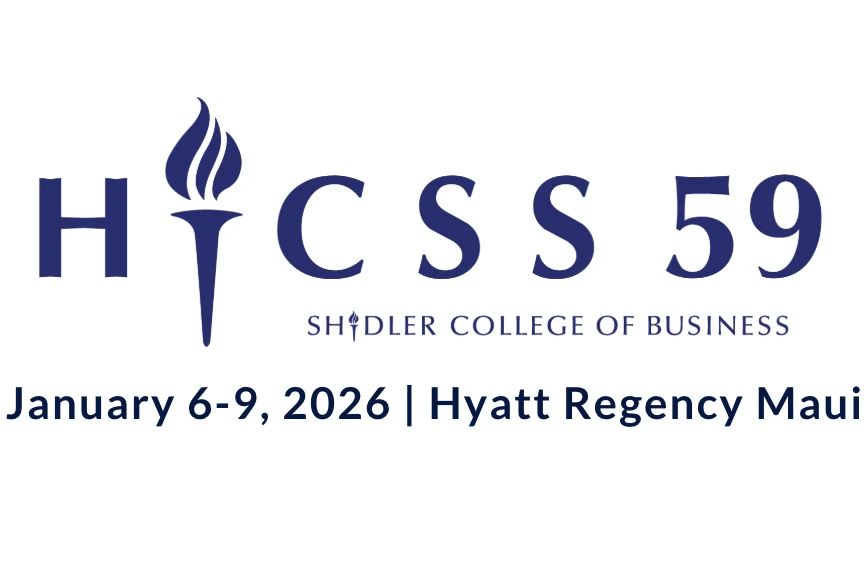News
Four New Articles Accepted at the Hawaii International Conference in System Sciences (HICSS) 2026
#1 Paper
Authors: Nils Ness, Dr. Scott Thiebes, Dr. Manuel Schmidt-Kraepelin, Prof. Dr. Ali Sunyaev
Title: Making Genetic Testing Privacy Policies Easier to Read! And Understand? Leveraging LLMs to Improve Readability Through Summarization
Abstract: Privacy policies in direct-to-consumer genetic testing are often written in complex language, too complex for consumers to read and understand. This study presents a multi-stage summarization pipeline that combines feature extraction and multiple language models to generate readable summaries of such policies. We evaluate the summaries in a between-subject user study with 260 participants, across constructs of cognitive load, readability, trust, and understanding. Although conventional metrics indicated insufficient text quality of the DeepSeek and our model, user evaluations show that summaries can reduce cognitive load and improve perceived readability and trust. However, understanding levels remain consistent across all groups comparing our approach, DeepSeek and the full-text. This approach offers a potentially effective solution to the challenges associated with privacy communication in sensitive domains such as genetic testing, while also enhancing consumer perception and effort.
#2 Paper
Authors: Long Hoang Nguyen, Guangyu Du, Prof. Dr. Sebastian Lins, Prof. Dr. Ali Sunyaev
Title: Investigating the Impact of Rewards and Sanctions on Developers’ Proactive AI Accountability Behavior
Abstract: Accountability of artificial intelligence (AI)-based systems is often addressed reactively, mainly after harm occurs. This study shifts toward proactive approaches, highlighting AI developers’ role in risk mitigation. Proactive AI accountability behavior refers to self-initiated, future-oriented actions that go beyond formal job roles to justify developers’ actions and decisions, and to facilitate the clear attribution of accountability. Drawing on Proactive Motivation Theory, we conducted an online experiment (n = 264) to investigate how governance mechanisms (rewards vs. sanctions) and motivational states impact such behavior. Our results reveal flexible role orientation as the key driver of proactive behavior and how rewards and sanctions impact such a mindset. We contribute by conceptualizing proactive AI accountability behavior and providing a theoretical model that explains its emergence, underscoring the importance of using rewards to foster a proactive mindset alongside sanctions as guardrails against harmful initiatives.
#3 Paper
Authors: Sascha Rank, Dr. Scott Thiebes, Prof. Dr. Ali Sunyaev
Title: Inter-Organizational Collaborative Machine Learning: A Problem Space Exploration
Abstract: Organizations can benefit substantially from machine learning (ML), but individual organizations often encounter resource constraints (e.g., related to data and computational resources) when using ML. Inter-organizational collaboration represents a promising approach to overcoming such resource constraints. While there are various inter-organizational collaborative ML solutions, we lack a thorough understanding of the corresponding problem space. Based on a structured literature review and qualitative content analysis, we explore the problem space of inter-organizational collaborative ML and uncover six stakeholders, six needs, seven goals, and seven requirements. We also identify four promising future research directions. Our study lays a foundation for developing design knowledge and more targeted solutions for inter-organizational collaborative ML.
#4 Paper
Authors: Kevin Armbruster, Dr. ing. Niclas Kannengießer, Mikael Beyene, Gabriela Ciolacu, Prof. Dr. Ali Sunyaev
Title: A Taxonomy of Collusion in Information Systems
Abstract: Collusion poses a pervasive threat to information systems (IS), undermining fairness, trust, and system integrity. Existing research, however, often focuses narrowly on specific cases or emphasizes either social or technical aspects, resulting in fragmented insights and limited generalizability. This narrow scope hampers the development of broadly effective protection strategies. Recognizing collusion as a sociotechnical phenomenon shaped by the interplay between social actors and technical artifacts, we developed a case-agnostic taxonomy that helps uncover and classify various forms of collusion in IS. Using an iterative approach, we synthesized insights from multidisciplinary academic literature and descriptive legal case rulings. Grounded in general systems theory, the taxonomy offers a robust structural foundation for analyzing collusion in IS. This taxonomy benefits practice by capturing the structural characteristics of collusion, enabling more systematic analysis, detection, and mitigation.
